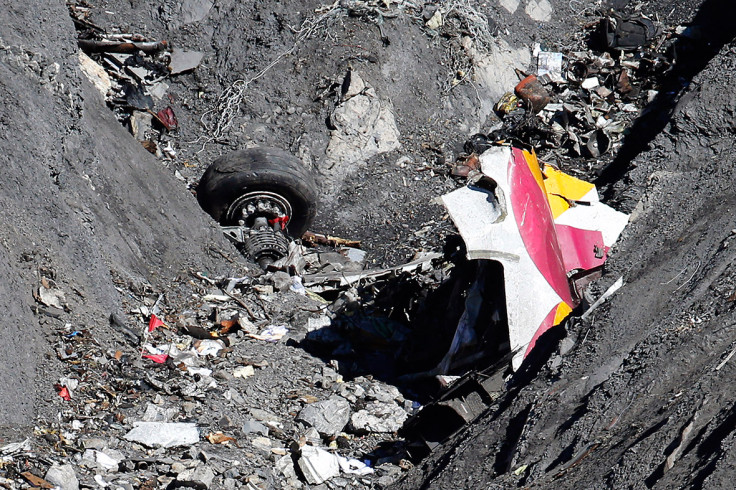Germanwings crash: I have depression like Andreas Lubitz - and I'd never dream of murdering 149 innocent people

I don't want to cast aspersions, whatsoever, about the Germanwings crash. It's an ongoing investigation and there's such an overwhelming human factor – such a large amount of grief, loss and emotion around the tragedy – that the only tasteful thing for pundits like myself to do is to observe silence.
However, I'm worried about the front page of today's Daily Mail, which carries the headline "Suicide pilot had a long history of depression."
"Why was he ever allowed to fly?" the Mail asks, referring to psychological tests administered to Andreas Lubitz during his pilot training. Essentially, the paper is suggesting a link between Lubitz's suffering from depression and him flying the Germaningwings flight 9525 into the French Alps, killing himself and all 149 passengers.
Again, I don't want to cast aspersions – the investigation into both Lubitz and the tragedy continues, and I'm no medical professional. But after struggling with it my entire adult life, I feel somewhat qualified to say that it wasn't depression that made Lubitz do what he did.
Depression is a withering illness. It erodes your happiness, your confidence, your sense of self. It makes you feel numb, blank. You become convinced that you have nothing to offer people, and start to hide yourself from them, first emotionally and then physically. Depression's secret weapon is that it will trick you into believing everything you think about yourself is normal, objective.
I tried to hang myself because I thought I was a burden to everybody who knew me, and the look on my face (I remember it well) was entirely neutral. This was merely what I ought to have been doing. It made sense to die.
'Depression is a withering illness. It erodes your happiness, your confidence, your sense of self. It makes you feel numb, blank. You become convinced that you have nothing to offer people, and start to hide yourself from them, first emotionally and then physically.'
That's what depression is, or at least, what it becomes when it's left unchecked. It makes you want to no longer be alive, lest you intercede on other people's lives. Depression makes you want to vanish, in as small and ignorable puff of air as possible.
It's an illness that convinces you that it's better to be invisible. This is why the depressed lie in bed, in the dark. The guilt and the self-hatred in depression becomes so strong that sufferers attempt to quarantine themselves from real life.
What they don't do is consciously hurt other people. What they don't do is commandeer a passenger jet and fly it into the ground. I'm not sure what the investigation into Andreas Lubitz will find but I am certain that it's irresponsible to suggest a link between the man's depression and his actions on the Germanwings flight.

Callous misunderstanding
Depression, and sufferers of depression, are already subject to a great deal of misunderstanding, some of it callous, some of it, it seems, deliberate. The idea that depression patients could simply get better, if they tried harder, if they weren't lazy or avoidant, still exists. And now the most popular news franchise in the world is telling people that being depressed turns you into a hijacker.
Although I almost feel that the Daily Mail's front page is less to do with the newspaper's actual opinions on depression, and more related to an age-old idea: fear sells. The Mail has grown fat by observing that idea. The Germanwings tragedy, and the loose ideas about mental health that predominate cultural consciousness, are, perhaps, simply the ideal ingredients of a great Daily Mail headline.
But surely that's worse. If the Daily Mail doesn't actually believe depression is a dangerous illness, and is simply suggesting that it might be as part of a cynical sales ploy, then how much lower can that newspaper dig? No longer content with punching down at gay people, poor people, people of colour, women and immigrants, the Mail is now finding excuses to attack people who are ill.
For its next trick, it'll blame cancer for a rise in knife crime.
Ed Smith writes about games, films and culture for IBTimes UK. He has also written for The Observer, Vice, New Statesman and Edge magazine. Find him on Twitter @mostsincerelyed
© Copyright IBTimes 2025. All rights reserved.






















